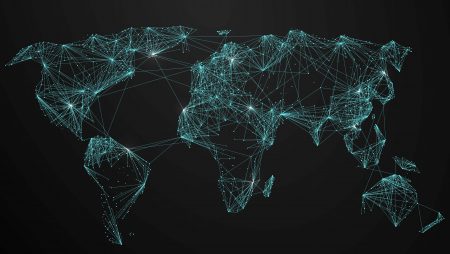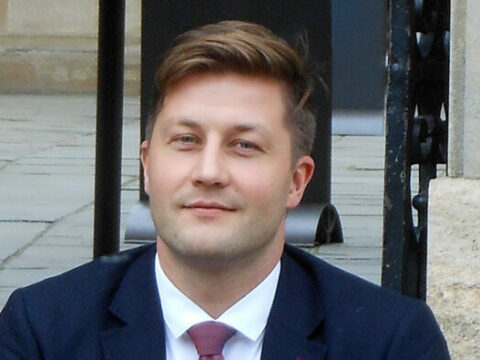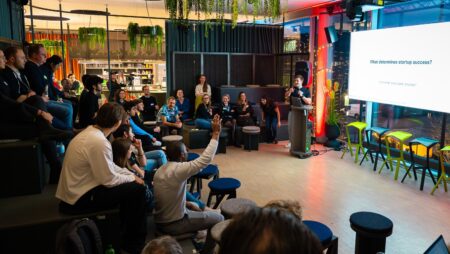
Research Programme on AI & Work
This programme supports research in the sphere of AI & Work.
Dr Fabian Braesemann is a Departmental Research Lecturer in AI & Work at the OII.
Fabian’s research focuses on the Science of Success. He uses data science methods to quantify the determinants of success in different fields:
1. The Science of Success in Business – can we predict the success of startup companies? Can we uncover universal patterns that are associated with success?
2. Success and the Future of Work: who will benefit from the trend towards remote and platform-mediated work, what is the future of the workplace, which technologies will succeed in times of rapid technological development?
3. Quantifying success online and offline: what are the determinants of online success, and can one influence it? Which regions benefit from the digital economy and why? What are the determinants of urban change, and how can cities benefit from it?
Before Fabian started to work as a Departmental Research Lecturer at the OII, he worked as a Research Fellow & Data Scientist in the Future of Real Estate Initiative at the Saïd Business School, University of Oxford, and as a Data Scientist at the OII on projects that applied data science to understand human development and labour markets: (a) Rural Online Labour Markets, (b) Geonet, and (c) Big Data and Human Development projects.
His research has been published in leading academic journals, and it was covered in national and international media. Fabian has been presenting the results and implications of his research in keynote talks at academic conferences as well as policy and industry events.
Fabian teaches the courses ‘Social Network Analysis and Interpretation’, and ‘Introduction to Statistics’ at the OII, and he supervises master students in social data science.
Having worked as a data scientist in industry and academia, Fabian has investigated social processes with a multitude of different online data sets in numerous domains. These experiences make him confident about the prospects and value of social data science as a key discipline in the 21st century – in academic research as well as in policymaking and industry.
He is optimistic that the availability of large data sets and computational methods will make it possible to describe, predict and manage social phenomena with the same levels of accuracy as processes in the natural sciences.
Besides his role at Oxford University, he runs a social data startup company – DWG Datenwissenschaftliche Gesellschaft Berlin. The DWG aims to bridge academic knowledge generation and social data science innovation. The company applies data science to generate insights into the digital transformation of markets and it works mainly with the public sector and international development organisations. Overall, the DWG works toward collecting data from online sources representing different layers of economic activity in Europe in order to build an empirical foundation for evidence-based policymaking in the 21st century.
Fabian has studied economics in Berlin, Warsaw and Vienna. He holds a doctoral degree from the Vienna University of Economics and Business (2016).
Science of Success, Quantifying success, Complex Systems, Network Science, Social data science, Future of work, Digital economy, Startups.
McCarthy, P.X., Gong, X., Braesemann, F. et al. The impact of founder personalities on startup success. Sci Rep 13, 17200 (2023). https://doi.org/10.1038/s41598-023-41980-y
Braesemann F, Stephany F, Teutloff O, Kässi O, Graham M, Lehdonvirta V (2022) The global polarisation of remote work. PLoS ONE 17(10): e0274630. https://doi.org/10.1371/journal.pone.0274630
Stephany, F., Neuhäuser, L., Stoehr, N. et al. The CoRisk-Index: a data-mining approach to identify industry-specific risk perceptions related to Covid-19. Humanit Soc Sci Commun 9, 41 (2022). https://doi.org/10.1057/s41599-022-01039-1

This programme supports research in the sphere of AI & Work.

This project aims to reveal the determinants of success in entrepreneurship, startups and innovation ecosystems using data science and qualitative research methods.

This research project is examining the geographies, drivers, and effects of Sub-Saharan Africa's emerging information economies at a time of changing connectivity and Internet access across the region.

With Dr Fabian Braesemann and Professor Paul X. McCarthy
The impact of founder personalities on startup success, how a predictive model outperforms industry standards to predict company success, and what factors can help us predict which startups will succeed.

With Dr Fabian Braesemann
Dr Braeseman present his latest research on the work implications of generative AI during a live webinar with ETLA in Helskini.

With Professor Paul X. McCarthy, Dr Fabian Braesemann, Clara Durodié, and Guy Gadney
The Big Launch event of the Oxford Science of Startups Initiative brings together academics, founders, investors and various stakeholders from the Oxford and London innovation ecosystem.

With Dr Fabian Braesemann
Here, we show that founder personality traits are a significant feature of a firm’s ultimate success. We draw upon detailed data about the success of a large-scale global sample of startups.

29 January 2025
A new study led by an international research team, including Dr Fabian Braesemann from the Oxford Internet Institute, part of the University of Oxford, shows how Generative AI tools like ChatGPT are reshaping the workforce.

10 January 2025
As we start the new year in times of conflict, uncertainty, and despair, we should be hopeful that things can become better - if we trust science. An opinion piece by Dr Fabian Braesemann.

22 January 2024
Departmental Research Lecturer Dr Fabian Braesemann visited Germany to present his latest research on the power of personality in shaping the success of startups and beyond.

17 October 2023
New research shows start-up founders have distinct personality traits which are more important to the success of their companies than previously thought.

Focus Online, 27 March 2025
Rents are rising relentlessly, and affordable housing is becoming increasingly scarce. Data scientist Fabian Braesemann explains the causes and shows how smart housing policy can counteract this.

Heilbronner Stimme, 10 December 2024
The facilities on the educational campus are on a growth trajectory. Thousands of students are already in the heart of Heilbronn. What's been happening at the site—and what's planned.

Raconteur, 20 March 2025
The UK government seems set on using AI to drive cost and headcount reductions in the civil service. But, while the technology’s capabilities are quickly improving, not all tasks can be automated, yet.
This course introduces students to statistics for the social sciences, with an emphasis on application to research on the Internet and society.